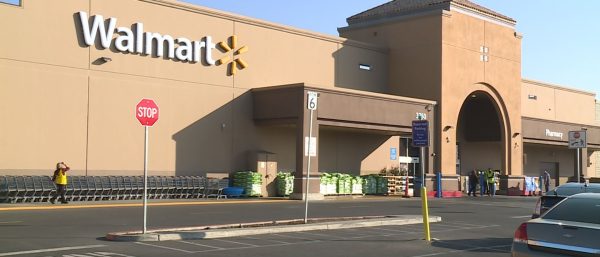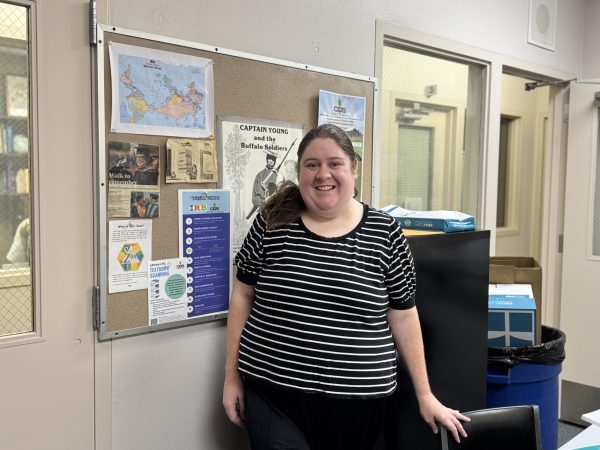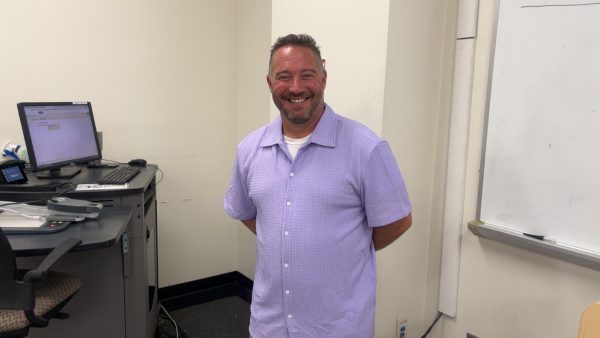COVID-19’s Impact on the Deaf Community
Living as a deaf person inherently comes with challenges on a day to day basis from people not understanding American Sign Language (ASL) or lack of patience using nonverbal communication. Now imagine those challenges along with being in a global pandemic.
The COVID-19 pandemic has brought to the deaf community more struggles in their day to day life. Salvador Garcia, COS ASL professor, said, “COVID sure did impact the deaf community, they need their interaction skills.”
Jesse Lewis, project director at the Deaf/ Hard of Hearing Service Center in Visalia also commented, “there is an increase in isolation due to the need to social distance and since many community members don’t have reliable enough internet to use videophones, they have felt cut off.”
The feeling of being cut off is not only limited to being at home though, it continues out into the real world when attempting to have interactions. Not everyone is educated on ASL nor do many care to learn ASL, so deaf people have to resort to other nonverbal forms of communication like typing on phones or writing on paper.
With the need to stay six feet apart though, these types of communication also become difficult, not to mention for those who can read lips, masks make reading lips unavailable and risky.
So, what can we do in these times to help individuals who are deaf or hard of hearing?
“We want people to be patient and take the time to use other communication methods, such as writing. Hearing people have a tendency to be impatient with the deaf community expecting the deaf people to make communication easier for them instead of finding the best communication method that will work for both the hearing person and deaf person, even if it takes more of their time,” says Lisa Painter, literacy specialist, “patience is not demonstrated often with the deaf community.”
“I would recommend for people to be more open-minded and work with us to be able to communicate with us by writing back and forth or using the phone to type it out,” Garcia suggests.
Michelle L. Bronson, Executive Director at the Deaf/Hard of Hearing Service Center, shared a recent experience that demonstrates how to smoothly interact with the deaf community.
“Recently when I replaced my iPhone, I went into the store with a typed up letter, with all needed account information and issues I’ve been having with my old iPhone. On the letter, I also asked that the associate write with me so we could finish our transaction. Much to my relief, the associate read and immediately started writing back and forth with me, with a very pleasant and patient demeanor the entire time. He gestured whenever possible to ensure I understood what he was about to do, and he never once showed an impatient gesture or expression.”
However, while Bronson had a similar positive encounter at a repair shop, Bronson made it clear that this is not always the case, “I was grateful and I wish more store/business associates would do the same. I wish this is the norm, most associates would refuse to read what I had typed up on the letter or on my iPhone and keep talking at me through their masks, even if I gesture to show them that I am deaf. Others are obviously impatient and rude.”
Bronson also mentioned it helps to show “smiling eyes” to show that you are willing and patient to work with deaf and hard of hearing people, as well as gesturing whenever possible.
If you are wondering how you can better educate yourself on the deaf community and find resources, Lewis says, “Go straight to the source by connecting with the Deaf and Hard of Hearing Service Center and becoming a volunteer, even if the volunteer work happens online.”
Garcia adds, “Right now, thanks to COVID, most of American Sign Language educators and specialists are using platforms such as YouTube, Instagram, and Tik Tok. There are a lot of videos to be able to learn the basic terms to work with us.”
If you want to learn more about the deaf community and find resources, the Deaf/Hard of Hearing Service Center is located at 113 North Church Street in Visalia, you can also visit their website.
COS also offers a variety of ASL classes that are available in the online format due to the pandemic for the next semester.
Do you know ASL? Would you like to learn? Let us know below.




